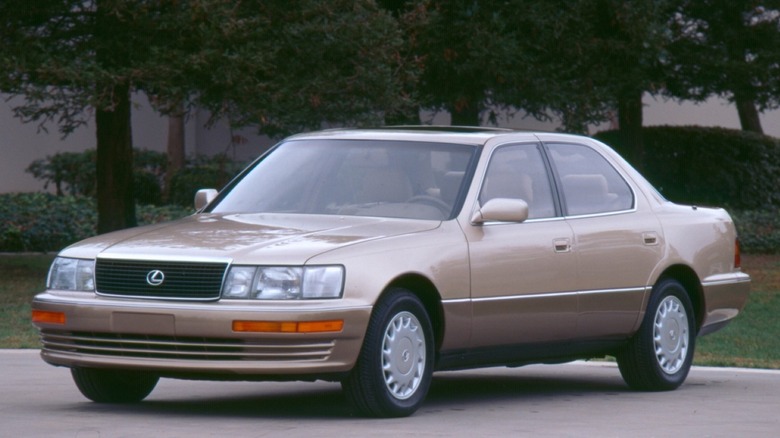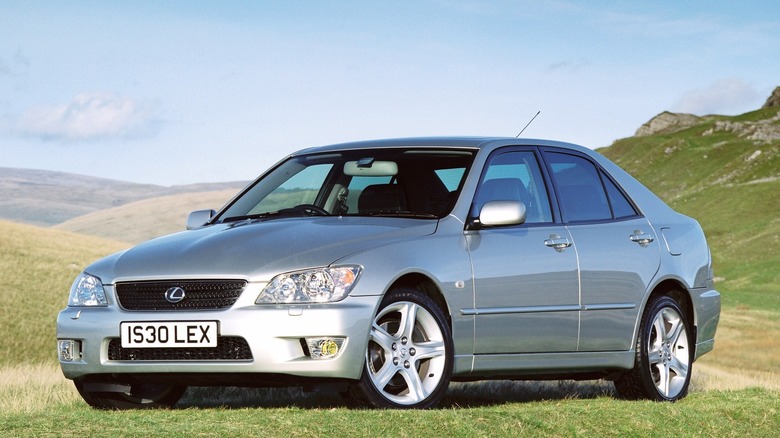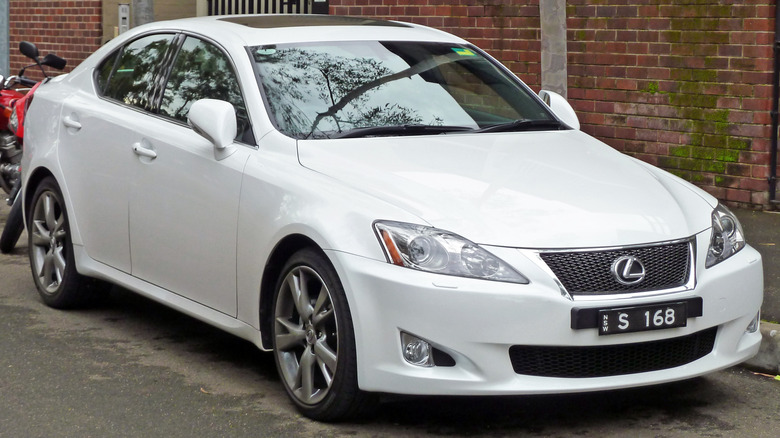Are Lexus Cars Reliable After 100k Miles? What Drivers Are Saying
As Toyota's luxury brand, Lexus is doubtless the poster child for luxury car reliability. It's a manufacturer that continues to employ tried-and-true technologies that have been refined over time, and, not surprisingly, topped our list of the most reliable car brands you can buy in 2025, beating parent company Toyota to the crown. Lexus has been at this since 1989 when it built its first cars, the rock-solid and reliable Lexus LS 400 and the ES 250. Today, its portfolio has expanded beyond those two to now include many other sedans, supercars, sports cars, and SUVs.
This means there's a wide range of shapes and sizes of vehicles to choose from. However, with used cars, things are not as simple as just picking a Lexus model and driving away. Rather, it's a long-winded process that will require you to perform due diligence and careful research before committing to buy so you don't end up with a car that burdens you with expensive repair bills. Part of that involves considering the mileage, because, typically, the older a car and the higher its mileage, the higher the chances of things falling apart. Hence, some tend to think it's somewhat risky to buy a vehicle that has more than 100k miles on the clock.
Which leads to the question: are Lexus cars reliable after 100k miles? Going by owner reports on the internet, it's safe to say yes, Lexus cars are reliable even after the 100,000-mile mark, provided that they are regularly maintained. As a matter of fact, many Lexus models are said to last beyond this, but some are going to be more durable than the others. Here's what drivers are saying about the longevity and durability of Lexus cars.
Lexus cars will do 200-300k miles with little or no fuss
Per owner reports on discussion sites like Reddit, Lexus cars are long-lasting and durable vehicles that mostly remain reliable even after clocking 100k miles. Posting on Reddit, u/TinuThomasTrain said their 2012 Lexus model had done around 200k miles and "still drives amazing and the car feels fine." Another owner of a 2003 Lexus IS 300 reported that they managed to rack up 249,000 miles on the car without babying it.
In a separate Reddit thread, u/kvn18 said: "A used Lexus is probably the car I'd feel most comfortable getting with higher mileage. My mom bought a '99 Lexus ES300 with 170k miles when it was probably like 4 years old... That tank ran problem free until about 320k miles when the transmission needed to be replaced and obviously cost more than the car was worth."
As far as online comments go, the consensus is that when looked after properly, the average Lexus vehicle usually lasts between 200,000 and 300,000 miles — although some owners have reported higher mileages. With high mileage cars, the trick is to try and fix issues as they occur, and to never ignore them for too long. It's also a good idea to take care of basic service items like fluid replacements as well as oil and filter changes as soon as they are due to help keep the car in top condition.
Some Lexus models might be too risky to buy at high mileage
While Lexus cars are known to be generally reliable and durable, certain models are best avoided if you don't want to end up with a car with recurring issues. Lexus IS 250 models offered between the 2007 through 2012 model years, for example, are known to suffer from common faults that can make the ownership cost more expensive if you end up needing professional assistance.
These cars use direct-injection engines, which make them prone to carbon buildup in the engine intake valves. Eventually, this can restrict the airflow into the combustion chamber, resulting in a decrease in the engine's power output and efficiency. Some 2007-2012 Lexus LS460 models tend to fare badly too, as they are notorious for brake actuator failure, which commenters note can be quite expensive to fix. That being said, if you feel any of these vehicles fits the bill for what you want, or prefer to look about with a more open mind, it wouldn't hurt to have the car checked thoroughly to ensure there are no unexpected problems.


